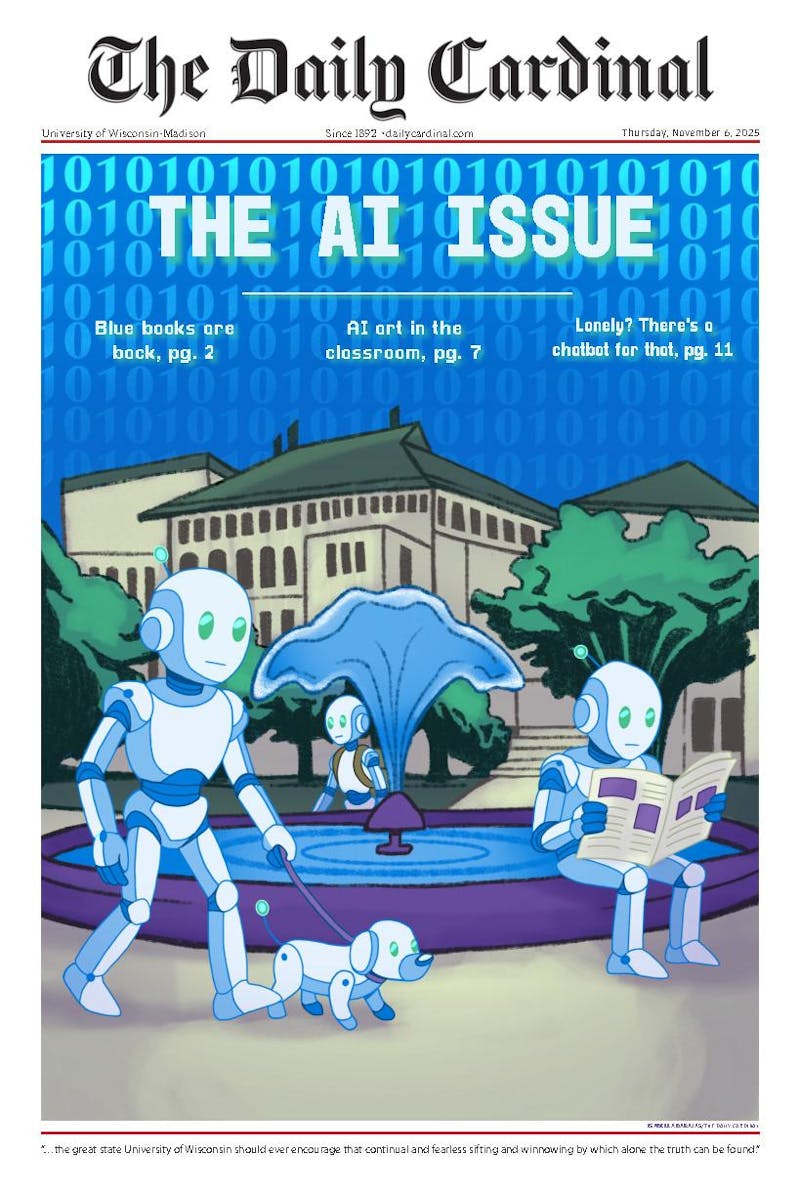The Bush Administration's \No Child Left Behind"" education bill passed earlier this year has vastly more to do with defining how public schools fail than it does with providing resources or solutions to making public education better.
At the center of this ""bipartisan"" legislation is mandated annual testing. These tests are imposed in grades three through eight in reading and math annually and at least once in grades 10 through 12. Additional annual tests in science will be given once between grades three to five, six to nine and 10 to 12. These tests will be used to measure whether schools make ""annual yearly progress"" towards 100 percent proficiency for all students by the year 2013. Any school or district that doesn't meet all of its goals for two consecutive years will be put into the ""needs improvement"" category and will be subject to ""corrective action.""
Bush has never stated what the objective of education is or even what his perspective of education is, but will imposed culturally biased and arbitrary test scores to create a statistical and quantitative bureaucratic monitor for schools, even though much of education is difficult to quantitate and not all learning can be respected with a test. Because of what these tests choose to measure, educators will teach to the test. The skills of analytic reasoning, interpretation and critical thinking will be downplayed in favor of rote thinking, skills and citizens.
Real accountability is to students and their communities. Testing is not an empowering tool but rather a sorting mechanism to fail the poor and reassure the rich of their position in this grossly unequal society. Tests fail to include other variables that weigh heavily on the scale of opportunity: Growing up in a violent neighborhood or household, poverty, broken homes, parents who can't read to children because they have to work all the time, lack of health care and all the other factors that distract and disrupt a child's ability to receive an education.
This is also a sorting mechanism for schools in how it ascribes a status to them if they don't make ""adequate yearly progress."" Sandy Kress, the lawyer who represented the White House in drafting the law and who now advises states on carrying it out, predicted that 50 to 90 percent of schools might be found inadequate. The Rhode Island Department of Education concluded that there was ""virtually no school in the state over the past four years that would actually meet that kind of criteria.""
Conservatives are clearly setting up schools to be labeled as failing so they can apply their ""remedy"" to public education. Remedy is a code word for their agenda, which is privatization. Privatization means allowing corporations to profit off of education. The goal of privatization already got a huge boost in the massive increase in mandated testing. Companies like McGraw-Hill (which has close ties to the Bush Administration) now have a much larger contract. And government contracts are the best kind for businesses; first of all because they are big, but they are also consistent and guaranteed. As long as the U.S. government or the state of Wisconsin exists, you'll get your pork, just ask the military industrial complex.
Watch what happens. The Bush Administration will implement these tests, declare schools are failing and invite corporations to teach to tests, run our schools and get publicly funded juicy contracts. What is wrong with this? Besides the test-based standardization of education and the implication of thinking of teachers and students as costs, public money should be going to books, schools and teachers, not some private individual's profit, or to a stockholder in the Edison Company. All these interests are doing is owning. They are not helping schools and are not at all involved with education.
Come to think of it, the idea of making money off simply owning stock is pretty criminal. You are getting something for nothing, making money off the backs of people's labor by simply owning. Public money needs to go to public goods and into solving public problems, not someone's dividends.
Not only is this bill and its implications contrary to students, teachers and the public, but conservative ideologues have taken issue with the federal government expanding its role in education and what that means to local control of schools. U.S. Rep. Peter Hoekstra, R-Mich., is quoted in The New York Times as saying, ""We're going to tell local school districts and states the results they have to get and we are going to tell them how to do it, and that is not what I came to Washington for. Bottom line is that this is a significant expansion of the federal role."" People from across the spectrum have commented on the federal government's role in this mandate. Richard Rothstein, a moderate who writes on education issues for The New York Times, said this is a ""breathtaking intrusion of the federal government on states' control of education ... and seems to impose on every state a Texas-type model that may actually retard sensible accountability in some places.""
Despite the hype of this bill, which came from a conservative taking interest in a progressive issue, the funding it provides could classify it as an unfunded mandate. Education spending subject to annual appropriations, a widely used measure of federal support for education, more than doubled from 1996 to 2002, growing at an average of 13.4 percent a year to $48.9 billion. By contrast, for next year, Bush proposed an increase of 2.8 percent, to $50.3 billion in 2003. The increase would dwindle every year to total $55 billion in 2007 under Mr. Bush's proposal. We may not even receive the promised 2.8 percent increase because of deficits as far as the eye can see caused by Bush's tax cut for the rich and, you guessed it, military spending. The pending war in Iraq will cost upwards of $200 billion. We may have to have bake sales to pay for these mandated standardized tests.
As an educator, I have no problem with constructive criticism of teachers and of the educational system in general. The problem I have with the Bush Administration is that the goal is to implement an educational system based on rote methods and narrow results discouraging critical and analytical minds and to open a massive and publicly funded institution to the profit motives of private corporations.
The Bush Administration is doing this for two reasons. One is that it considers teacher's unions a political enemy. They give 90 percent of their money to Democrats. The other reason is that education can be a socially empowering tool that is free to all and could lead to economic independence. When you are trying to conserve and enhance your own position you don't want economically independent critical thinkers challenging that privilege.





